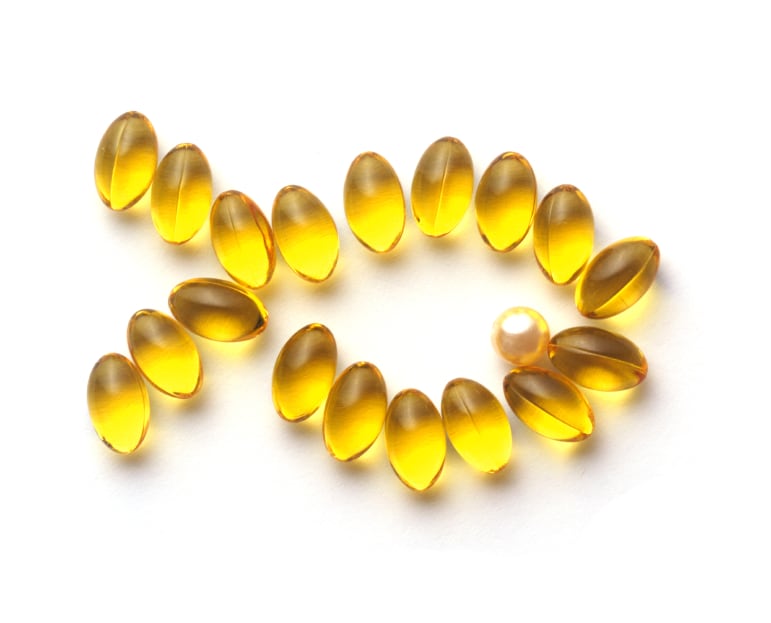Data from a double-blind, randomized, crossover, controlled study with 152 healthy adults indicated that DHA supplementation led to greater reductions in specific markers of inflammation than an equal dose of EPA.
“Data from this carefully controlled RCT indicate that DHA supplementation at a dose of w3 g/d for 10 weeks may be more potent in modulating inflammation markers than would be a similar dose of EPA in men and women with abdominal obesity and subclinical systemic inflammation but who are otherwise healthy,” wrote the authors in the American Journal of Clinical Nutrition.
“To our knowledge, these are important new data because most available studies have been undertaken with the use of mixtures of various ratios of EPA and DHA. Consistent with previous studies, DHA was also more potent than EPA in modulating lipid risk factors.
“The extent to which such differences between EPA and DHA in modulating lipid and inflammation risk factors are meaningful in terms of CVD-risk prevention remains unclear and need to be investigated in the future.”
“The reality is that more research is necessary”

Commenting independently on the study, Harry Rice, PhD, VP of regulatory & scientific affairs for the Global Organization for EPA and DHA Omega-3s (GOED), told us: “I like these types of studies from a scientific perspective, but it concerns me that the popular press will report on this study or others like it and the public will be led to believe that either EPA or DHA is the superior omega-3 fatty acid.
“In April, an article was published in Hypertension Research with the following title – ‘Which has the stronger impact on coronary artery disease, eicosapentaenoic acid or docosahexaenoic acid?’ The authors concluded as follows, ‘Our findings suggest that interventions with EPA agents or supplemental EPA intake, compared with DHA agents or supplemental DHA, may confer greater benefit for plaque stabilization to prevent the onset of ACS in patients with CAD.’
“The reality is that more research is necessary before we have a better understanding of whether or not EPA or DHA is better for certain conditions. Even then, do you choose to tilt the odds in your favor for one benefit over another?
“Perhaps you do if you're at a higher risk for a particular condition. For the time being, I would recommend eating fatty fish which obviously contains a mixture of both EPA and DHA and taking a high quality supplement with both EPA and DHA,” said Dr Rice.

Study details
Led by Dr Benoıt Lamarche, the researchers recruited 48 men and 106 women to participate in their RCT. Participants were randomly assigned to receive 2.7 grams per day of EPA or DHA or corn oil (control) for 10 weeks. All of the supplements were formulated as re-esterified triacylglycerol and provided by Douglas Laboratories.
Results showed that, compared with EPA, the DHA supplementation was associated with a significantly greater decrease in interleukin-18 levels, while no significant differences were observed for CRP, IL-6, or tumor necrosis factor-alpha
Lipid measures showed that DHA reduce triglycerides and the cholesterol:HDL-cholesterol ratio more than EPA, while HDL levels also increased more in the DHA group. Men in the DHA group experienced significant increases in LDL cholesterol levels compared to EPA, but no such differences were observed for women.
“The fact that the LDLcholesterol–raising effect of DHA seems to be more pronounced in men than in women deserves further investigation,” wrote the researchers. “We showed that the increase in total plasma apoB after DHA supplementation was one-half that of LDL cholesterol.” [Apo B or Apolipoprotein B is the main apolipoprotein of LDL cholesterol that is responsible for the transport of cholesterol to tissues].
“This result, combined with a greater reduction in serum triglycerides, suggests an increase in the LDL particle size with DHA as well. This assumption needs to be verified by proper measures of the change in LDL particle size with EPA and DHA.”
Source: American Journal of Clinical Nutrition
Published online ahead of print, doi: 10.3945/ajcn.116.131896
“Randomized, crossover, head-to-head comparison of EPA and DHA supplementation to reduce inflammation markers in men and women: the Comparing EPA to DHA Study”
Authors: J. Allaire et al.

